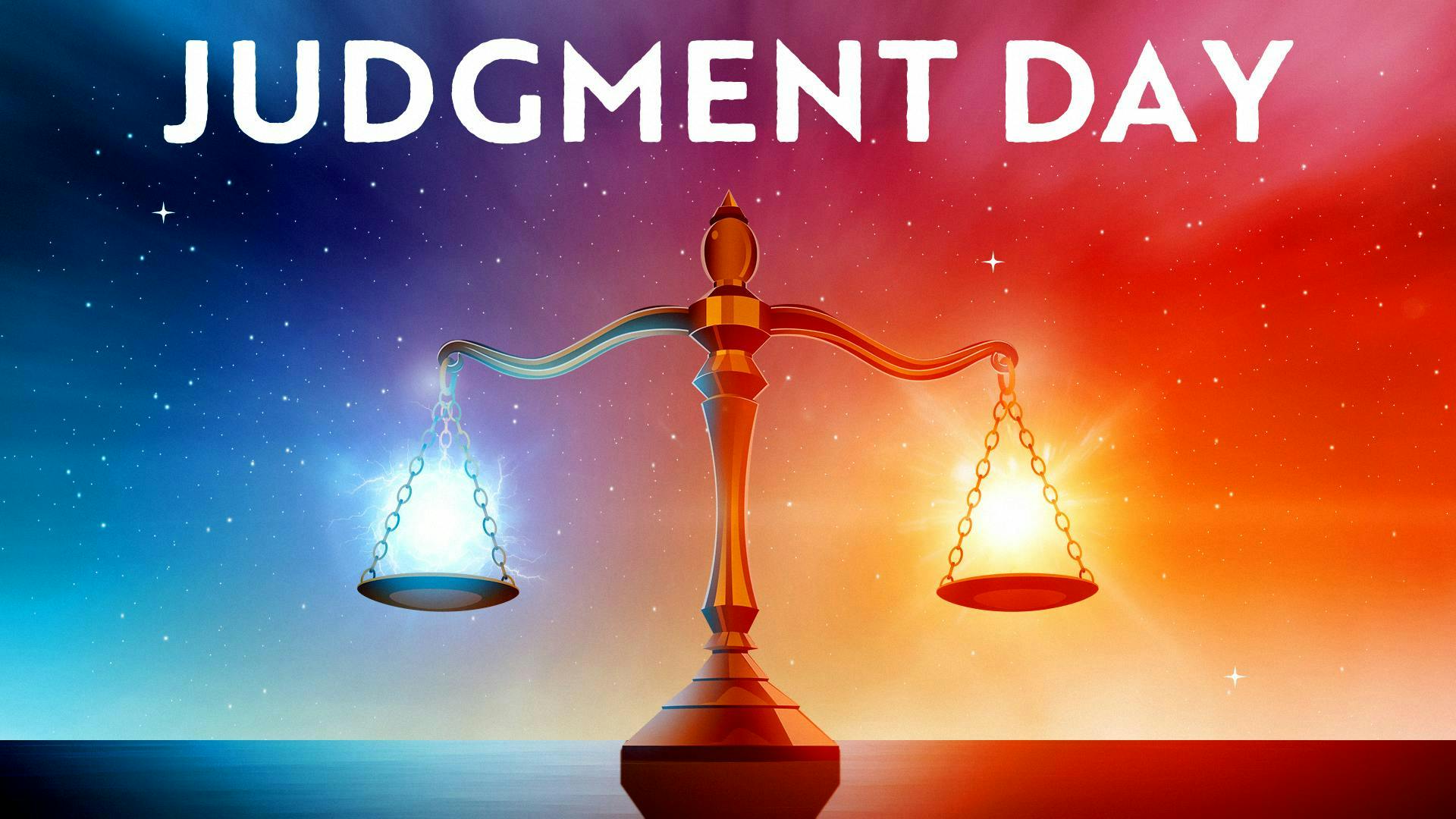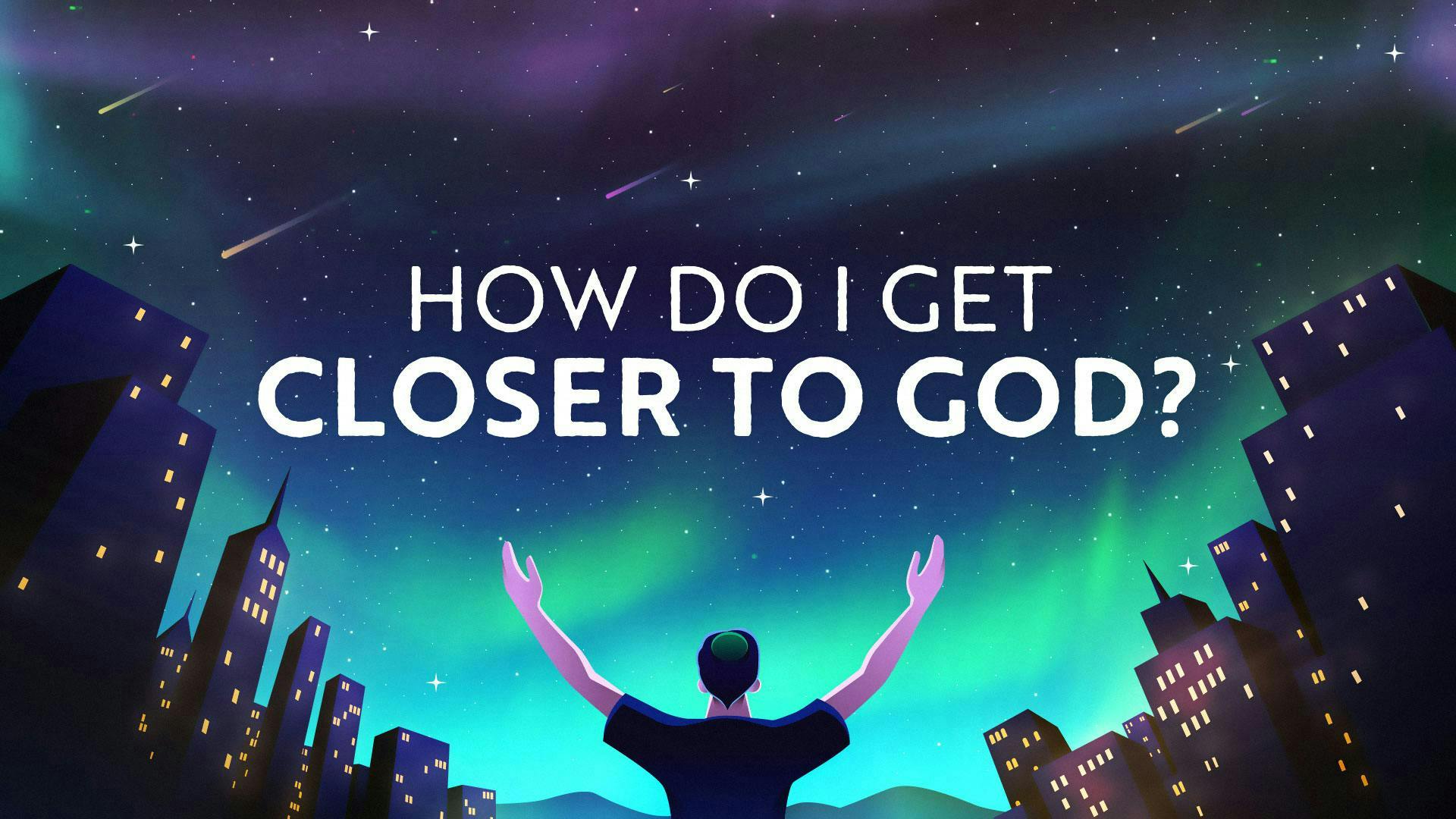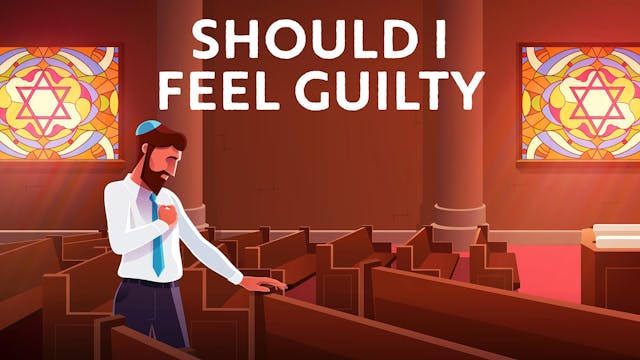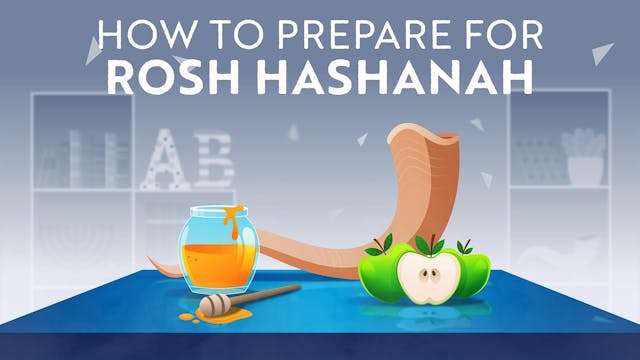Rosh Hashanah 2025: Videos, Meaning & Symbolism
Making Sense of Repentance
Teshuvah, is a personal process. Nevertheless, Judaism has many laws for repentance. How can there be laws for something so personal?

Rosh Hashanah Videos
When is Rosh Hashanah 2025?
Rosh Hashanah upcoming dates: September 22 - September 24, 2025
Rosh Hashanah Podcasts
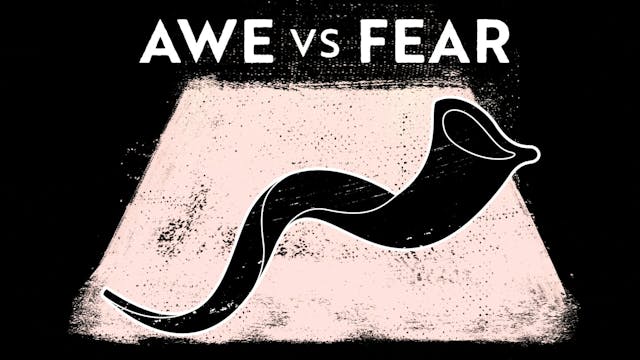
Yamim Noraim And The Difference Between Awe And Fear
Video • 1 hour, 18 min
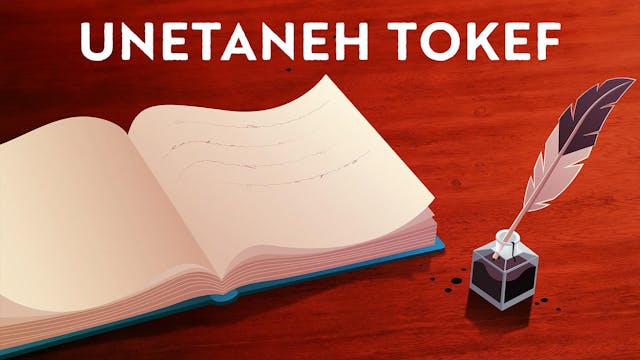
Commentary On Unetaneh Tokef - The High Holiday’s Scariest Prayer
Video • 1 hour, 11 min
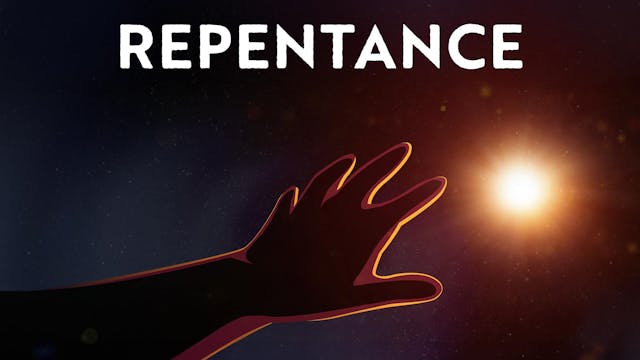
Repentance: The Guiding Voice Of Our Moral Conscience
Video • 1 hour, 34 min
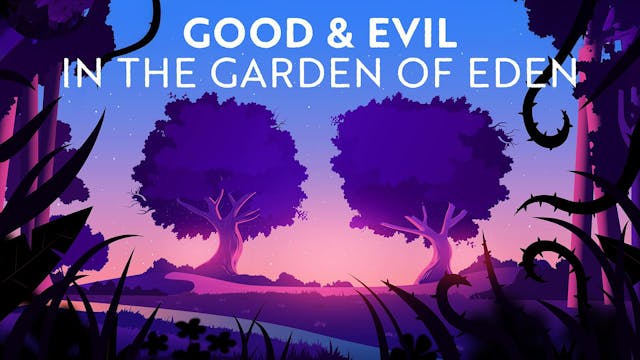
The Tree Of Life Vs The Tree Of Knowledge
Video series • Part 1 of 8 • 53 min
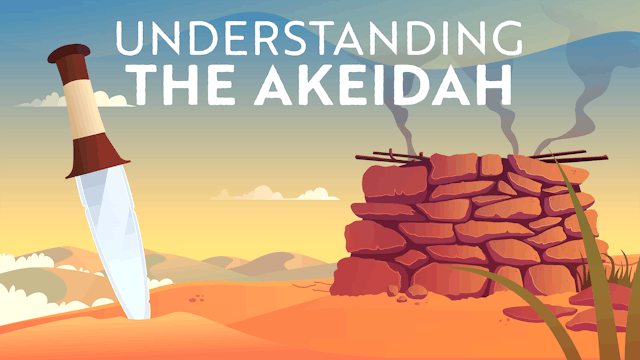
Why Did God Ask Abraham To Sacrifice His Son?
Video series • Part 1 of 7 • 48 min
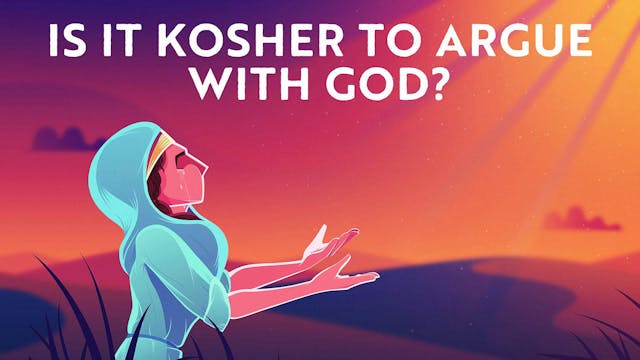
Is It Kosher To Argue With God?
Video series • Part 1 of 10 • 36 min
Rosh Hashanah Resources
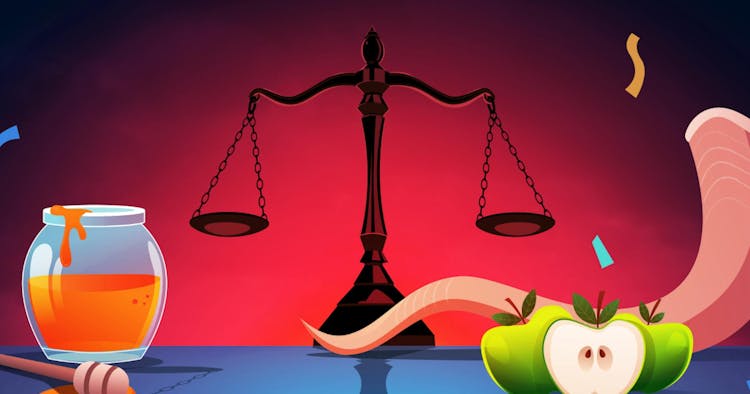
Rosh Hashanah: Day of Judgment or Day of Celebration?
101 Guide
. Rosh Hashanah comes around every year. But despite this fact, many of us find ourselves approaching the day unprepared. Part of that has to do with confusion about the essence of the day. Is Rosh Hashanah a day of guilt and remorse, or a day of celebration?
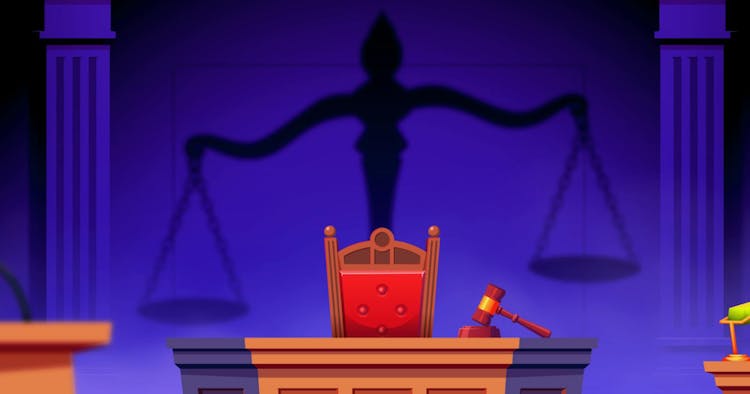
Rosh Hashanah: The Jewish New Year
101 Guide
. Discover Rosh Hashanah 2024, the Jewish New Year, its traditions like the shofar, symbolic foods, and its role in the High Holidays. Learn about its significance as a time for reflection, repentance, and renewal during this two-day celebration.
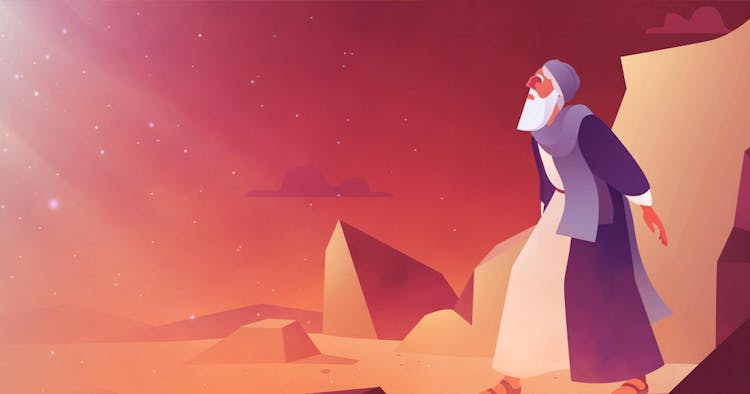
The Secret Message of Unetaneh Tokef
101 Guide
Unetanah Tokef is one of the most important of the Rosh Hashanah prayers. It bestows a sense of awe and dread on anyone who hears it chanted in synagogue. But there’s a hidden message in Unetaneh Tokef, one that can change the way we understand the holiday.
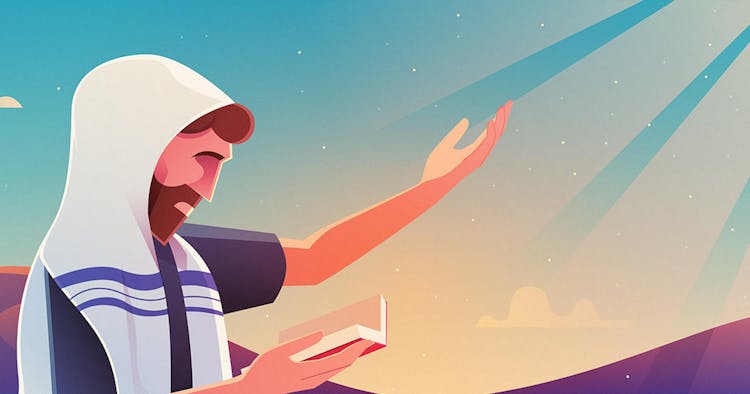
5 Steps to More Meaningful Rosh Hashanah Prayer
101 Guide
. As we approach Rosh Hashanah, many of us find ourselves confused about how to properly pray on the holiday. Should we be confessing our sins and begging for forgiveness? Or is the Jewish New Year about something else entirely? Take a look to discover 5 tips straight from Torah sources for a more meaningful Rosh Hashanah experience.
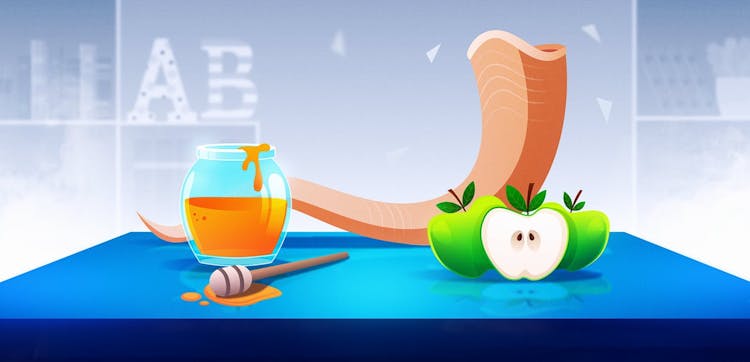
Rosh Hashanah Study Guide
Holiday Guide
A printable guide to aid our video series "How To Prepare For Rosh Hashanah."
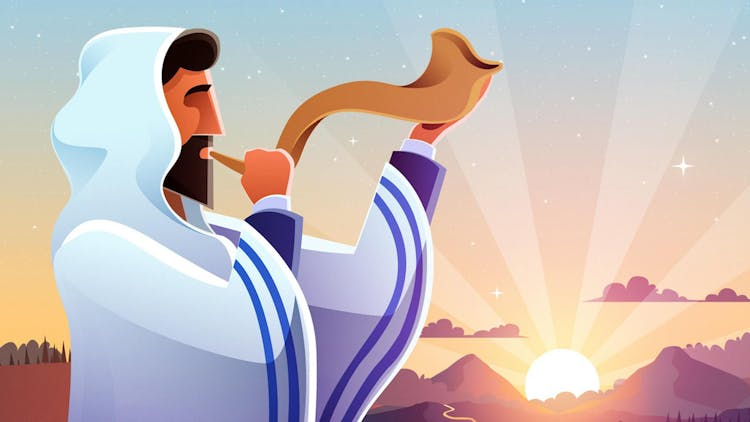
High Holiday Reader
Holiday Guide
A printable guide to help you gain a new understanding of prayer, awe, and fear on the yamim noraim.
What Is Rosh Hashanah?
About Rosh Hashanah
Rosh Hashanah, which translates literally to “head of the year,” is the Jewish New Year. It is the new year for people, animals, and for legal contracts. According to commentators of the Talmud, Rosh Hashanah commemorates the creation of man (Tractate Rosh Hashanah).
Rosh Hashanah is celebrated as a two-day holiday, beginning on the first day of the month of Tishrei. According to the Torah, however, Rosh Hashanah is a one-day celebration.
Since the destruction of the Second Temple in Jerusalem in 70 CE, it became more difficult to determine the date of Rosh Hashanah in the same way it had been determined prior, so a second day was added to Rosh Hashanah to account for the unclarity. The two days of Rosh Hashanah are referred to as a Yoma Arichtah, one long day.
The Talmud teaches us that three books are opened on Rosh Hashanah, where the fate of the righteous, the wicked, and the intermediate individuals are recorded.
The Bible refers to this holiday as Zichron Teruah and Yom Teruah, “day of blowing the horn” (Leviticus 23:24, Numbers 29:1). In Jewish prayer books, Rosh Hashanah is also called Yom HaZikaron, “a day of remembrance.” The Mishnah refers to Rosh Hashanah as the day of judgment.
The prayers for Rosh Hashanah are broken up into three parts: Malchuyot, Zichronot, and Shofrot. The overarching theme of the prayers and of the holiday is the coronation of God as King of the universe.
Since Hebrew days begin at sundown, the beginning of Rosh Hashanah is at sundown at the end of 29 Elul, going into 1 Tishrei.
Erev Rosh Hashanah
Before Rosh Hashanah we should ask forgiveness from anyone we may have wronged. Similarly, we should forgive anyone who might have wronged us. Many have the custom to go to a Mikveh to cleanse themselves in preparation. Some have the custom of visiting cemeteries to appeal to God to hear our prayers in the merit of those more righteous.
We also perform Hatarat Nedarim, annulment of vows, so we can go into the new year with a clean slate.
<h2 style="text-align: center;">Rosh Hashanah Traditions</h2>
Rosh Hashanah Greeting And Wishes
On Rosh Hashanah, it is customary to greet one another with the blessing in hebrew: L'shanah tovah tikateiv veteichateim, “May you be inscribed and sealed for a good year.”
Tashlich Prayer
A special prayer said near a body of water, symbolically casting our sins into the sea.
Rosh Hashanah & Shofar Blowing
There is a commandment for all to hear the shofar blasts from a horn, customarily a ram’s horn, on Rosh Hashanah. Rabbi Saadiah Gaon offers 10 reasons for this commandment:
- God completed Creation on Rosh Hashanah, establishing His sovereignty over the Universe. We blow the shofar as a renewal of God's renewal God’s coronation as King.
- Since Rosh Hashanah is the beginning of the Ten Days of Repentance, we blow the shofar so that its cries will awaken us to repent.
- The shofar was blown at Mt. Sinai when the Torah was received.
- The blasts of the Shofar are compared to the exhortations of the Prophets; on Rosh Hashanah we are reminded of the importance of their words.
- The broken blasts, shevarim, remind us of the destroyed Temple.
- Abraham displayed incredible zeal to do the will of God, even when it meant sacrificing his son, Isaac. In the end, a ram was sacrificed in his stead. The ram’s horn reminds us of Abraham’s readiness to perform God’s will.
- The powerful sounds of the shofar stir our hearts with feelings of awe towards God.
- The intense blasts help us recognize the solemnity of the day.
- The ingathering of Jews into the Land of Israel during Messianic times will be heralded by the blasts of the shofar.
- The resurrection of the dead in Messianic times will also be heralded by the shofar sounds.
Rosh Hashanah Foods & Symbolism
- Round Challah: During all of the High Holidays we eat round challah, symbolizing fullness and completion. The challah is dipped into honey.
- Honey: On Rosh Hashanah, Challah is dipped into honey and we also dip apples into honey, symbolically praying for a “sweet” new year.
- Pomegranates: Pomegranates are one of the Seven Species of Israel. It is traditionally used as the new fruit for the Shehechiyanu blessing. The pomegranate is said to have 613 seeds, corresponding to the 613 mitzvoth.
- Carrots: The Hebrew word for carrot, gezer, sounds like the Hebrew word for decree, g’zar. We eat carrots on Rosh Hashanah to express our desire that God strike any negative decrees against us.
- Beets: The Hebrew word for beets is similar to the word for “remove.” Eating beets expresses our hope that God will remove our enemies.
- Fish Head or Sheep’s Head: We eat the head of an animal so that “we will be as the head and not as the tail.”
Rosh Hashanah Meaning
Judgement Day
What is the meaning and purpose of Rosh Hashanah? Rosh Hashanah is the beginning of a new year, a new start. The Talmud states that on Rosh Hashanah, God judges our deeds from the past year, and records our future fates for the coming year. Rosh Hashanah also starts the “Ten Days of Repentance” which culminate with Yom Kippur.
The holiday of Rosh Hashanah bears many titles. In the Torah, it is referred to as “Yom Teruah,” a day of shofar blasts. In Rabbinic sources, it is referred to as “Yom haDin,” the day of judgement; “Yom haZikaron,” the day of remembrance; and of course, “Rosh Hashanah” – the beginning of the year. In line with these characterizations, Rosh Hashanah is generally celebrated with a sense of awe and humility, and the majority of the holiday is spent in intense prayer.
Rosh Hashanah Services, U'Netaneh Tokef
The prayer services include the sections Malchuyot, Zichronot and Shofarot, which discuss God’s kingship, God’s remembrance of His creations, and the symbolism of the Shofar, respectively. They also include many passages that discuss God’s judgement, including the sobering U’Netaneh Tokef. The shofar is also blown one hundred times during the prayer service.
Rosh Hashanah can seem overwhelming at first. It deals with very lofty and heavy themes, themes that many of us struggle to connect with. Aleph Beta goes in search of how we can connect to Rosh Hashanah, pursue meaning, and find relevance in a modern context.
If you enjoyed this, learn more about the High Holidays with Aleph Beta with pages on Elul and the High Holidays, Tzom Gedaliah, Selichot and more.


